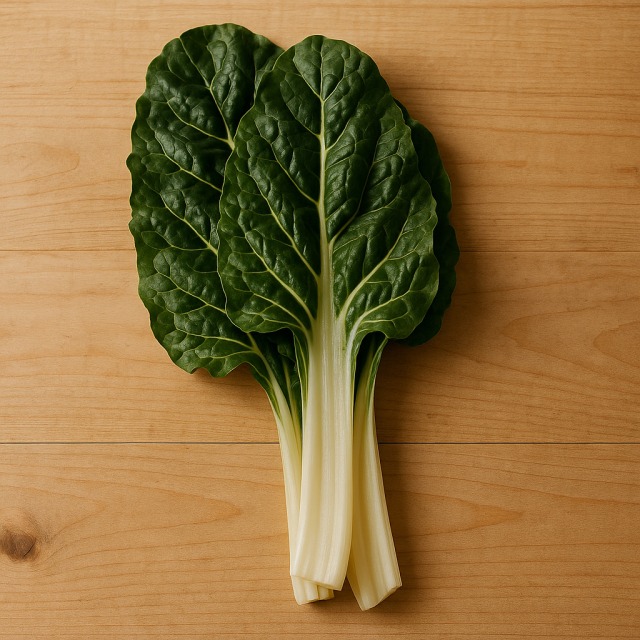Calorie Chart / Vegetables / Spinach
How Many Calories Are in Spinach?
Calculation of the nutritional value & Recommended Dietary Intake of spinach
For g and a calorie requirement of kcal
| Calories 50 kcal | Proteins 4.6 g | Lipids 0.6 g | Carbohydrates 6.4 g |
| 3% | 6% | 1% | 2% |
Health benefits of spinach

Spinach - 100g
Calories 25 kcal
Proteins 2.3 g
Lipids 0.3 g
Carbohydrates 3.2 g
Spinach is classified as a very low-calorie vegetable: compared with energy-dense foods, its calorie contribution is minimal while its micronutrient density is impressive. Behind those few calories hide large amounts of vitamin K, provitamin A (beta-carotene), vitamin C, and folate. Spinach also provides non-heme iron, magnesium, and manganese, minerals that help reduce fatigue and support normal muscle function. Because the calorie count is so limited, many dieticians recommend spinach for weight-management plans where every calorie matters.
Rich in the antioxidants lutein and zeaxanthin, spinach is studied for a supposed protective effect on eye health. Its nitrates may help regulate blood pressure, although this benefit is still classed as "supposed" by several authorities. Historically, a 19th-century typing error placed the decimal point of its iron content one digit too far to the right; the correction was made decades later, but the myth lived on through the famous Popeye cartoons, reminding us that counting calories is only part of the nutrition story.
Whether you need to restrict or increase calories, spinach offers volume without energy overload, making it a flexible base for salads, sautés, or smoothies. Thanks to its negligible calories, it can easily be doubled or tripled on the plate without affecting daily calorie targets.
Tips for incorporating spinach into a balanced diet
Because spinach adds color, texture, and very few calories to a dish, it is perfect for bulking up meals that might otherwise be calorie-dense. Toss raw leaves with cherry tomatoes, a spoon of feta, and a drizzle of vinaigrette for a quick lunch. The salad will remain light in calories while delivering balanced proteins and satisfying flavor.
For a warm option, wilt spinach in a pan, then top with a poached egg; the runny yolk enriches the plate without pushing calories too high. Athletes looking to boost post-workout recovery can blend spinach into a smoothie with banana and unsweetened yogurt; the result is creamy, refreshing, and still moderate in calories.
Spinach also slots effortlessly into well-known recipes: think of a lasagna where part of the pasta sheets are replaced by sautéed spinach to cut calories, or a filling for quiche Lorraine where half the cream is swapped for chopped leaves. Finally, combine spinach with salmon en papillote; the fish delivers high-quality proteins while the greens keep total calories in check.
Frequently Asked Questions
- How many calories are in spinach?
- Spinach contains 25 kcal per 100 g.
- Is spinach good for low-calorie diets?
- Absolutely. Its very low calorie content lets you eat generous portions that increase satiety without blowing your daily calorie allowance.
- Does cooking spinach change its calories?
- Boiling or steaming adds virtually no calories; only the water content changes. Sautéing in oil or butter will raise total calories depending on the fat used.
- Which foods pair well with spinach for a balanced, moderate-calorie meal?
- Try spinach with grilled chicken breast, a side of brown rice, or baked cod; each option keeps calories reasonable while improving protein intake.
- Can eating spinach help increase calories for someone who needs to gain weight?
- On its own spinach is too low in calories; combine it with energy-dense additions such as almond slivers, avocado cubes, or a spoon of olive oil to raise overall calories.
- How does spinach compare to broccoli in calories?
- Both vegetables are low in calories, but spinach (25 kcal/100 g) is slightly lower than broccoli (≈34 kcal/100 g), making spinach marginally better for strict calorie control.
Similar foods
Information provided by Calorie Menu may contain inaccuracies or errors. It cannot, under any circumstances, substitute medical advice or medication.










